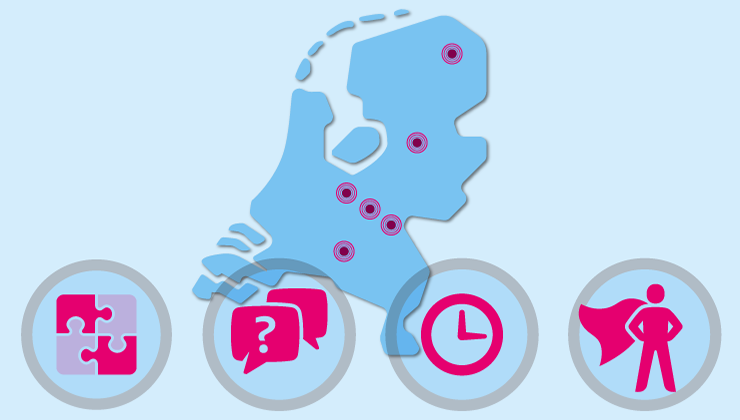Evaluation experiments for social assistance benefit recipients: Effects on the job finding rate

The Dutch Ministry of Social Affairs and Employment has asked CPB Netherlands Bureau for Economic Policy Analysis to evaluate the experiments for individuals on social assistance benefits under the Participation Act. Relieving beneficiaries of their obligations has no negative effect on the job finding rate from social assistance, when compared to the initial situation. More job search assistance and more opportunities to earn income next to welfare benefits sometimes lead to a higher outflow to part-time jobs. In many municipalities, however, the results are surrounded with much uncertainty. In future experiments, it is important to limit the number of different interventions to be able to make more precise statements.
Downloads
Roughly three types of experiments were run in six municipalities. The experiments consist of granting an exemption from the labor and reintegration obligations in social assistance and / or more intensive guidance to work and / or a higher release for additional earnings next to social assistance. The experiments took place in six municipalities: Deventer, Groningen, Nijmegen, Tilburg, Utrecht and Wageningen.
Exemption from obligations in social assistance has no effect on the job finding rate, compared to the initial situation. For all municipalities, we find no (statistically significant) effect of the exemption from the labor and reintegration obligations in social assistance on the outflow to work. However, the difference with the baseline for some of the participants is probably not large, and the estimates are rather unprecise.
More intensive job search assistance has no effect on the outflow to fulltime work, but sometimes has a positive effect on the outflow to part-time work. For all municipalities, we find no effect of more intensive job search assistance on the outflow to fulltime work. Only in Utrecht is there an effect on the outflow to part-time work (at a significance level of 5%). 16 months after the start of the experiment, 20% of the treated group in Utrecht worked more than 12 hours a week, compared to 12% in the control group.
A higher release of additional earnings next to social assistance has no effect on the outflow to fulltime work, but sometimes has a positive effect on the outflow to part-time work. For all municipalities, we find no effect of a higher release of additional earnings in social assistance benefits on the outflow to fulltime work. This was probably to be expected, because participants were not allowed to earn more than 200 euros (net) per month in addition to their benefit. Only Utrecht has a positive effect on the outflow to part-time work (at a significance level of 5%). 16 months after the start of the experiment, 19% of the treated group in Utrecht worked more than 12 hours a week, compared to 12% of the control group.
In some municipalities the effects cannot be interpreted directly as the (sole) effect of the intervention. In Groningen, the control group (invited to participate in the experiment, but no change in treatment), shows different results after the start of the experiment than the so-called reference group (not invited to participate in the experiment). Before starting the experiment in Nijmegen, we already see considerable differences in the outcome variables between the treated groups and the control group. In Tilburg, too, we already see differences between the treated groups and the control group before the start of the experiment. As a result, the observed effects in these municipalities cannot be directly attributed to (just) the interventions.
Further research can explore the effects on the outflow to self-employment and the effects in the longer term. Due to data limitations, it was not possible to determine whether the experiments have an effect on the outflow to self-employment. In addition, the effects could only be determined for the first two years.
Lessons for future experiments: reducing the number of different interventions leads to more precise estimates. The experiments contribute to evidence-based policymaking. The efforts made by the project leaders, researchers, ZonMw and the Ministry of Social Affairs and Employment in these experiments are therefore highly appreciated. In future experiments, we may learn more from the interventions if the number of different interventions is reduced, so that the effect per intervention can be determined more precisely. It is also advisable to keep the interventions across municipalities uniform, again in order to be able to determine the effects of a particular intervention more accurately. It is also advisable to first invite participants and then randomize them afterwards. As a result, effects other than the intervention itself are more equal between the treatment group and the control group.
Authors


